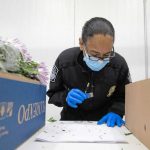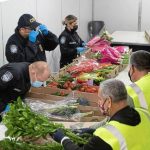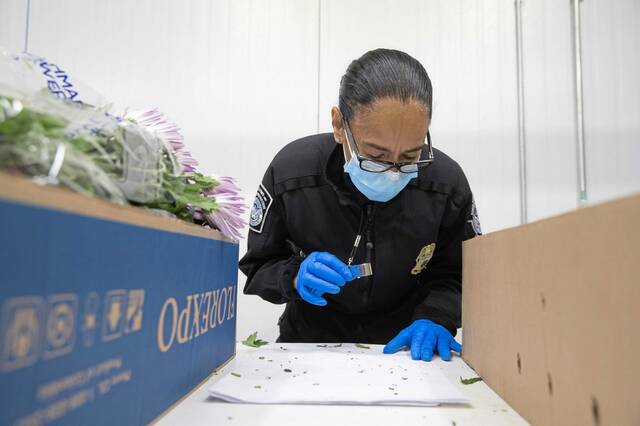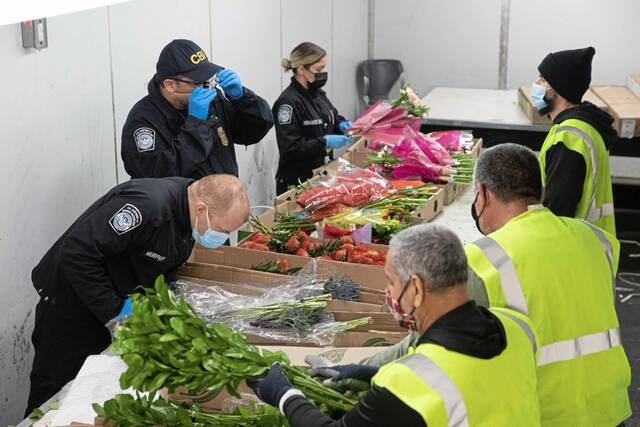Customs agents helped guarantee pest-free petals for Valentine’s Day


Share this post:
Earlier this week, people who received a bouquet of flowers for Valentine’s Day were typically looking for the card.
But earlier this year, when Customs and Border Protection officers received them, they were looking for pests, because the U.S. has become more reliant on importing flowers from overseas growers in recent years.
This year, the CBP’s agriculture specialists inspected nearly 400,000 flower shipments nationwide, patting them down and shaking free any hitchhiker pests. In 2022, agents nationwide found about 700 significant pests of various species.
“This Valentine’s Day, or any other day when you present a beautiful bouquet of flowers to your loved one, know that a CBP agriculture specialists made sure that your bouquet was free of any pests that could harm garden or your family, or that pose a threat to our nation’s agriculture,” said the CBP’s Baltimore Field Operations Director Stephen Maloney.
Some of the most common pest species that can hitch a ride on flowers include owlet moths, aphids, moths and leaf miner flies. The insect’s larva has the potential to cause extensive damage to crops, fruit and ornamental plants.
The Netherlands it the top source for imported cut-stem flowers, supplying primarily tulips, which was the most popular flower moving through CBP offices. During 2021, the Netherlands shipped nearly 3.9 million stems to U.S. ports of entry. Other nations who regularly ship flowers to the U.S. include Ethiopia, Guatemala, Costa Rica and Colombia.
At the CBP’s Baltimore field office, which spans central New Jersey down to northern Virginia, agriculture specialists inspected more than 100 flower shipments and more than 4.5 million stems in January.
“CBP agriculture specialists keep us safe every day by protecting our nation’s critical agricultural resources and economic vitality,” Maloney said.



